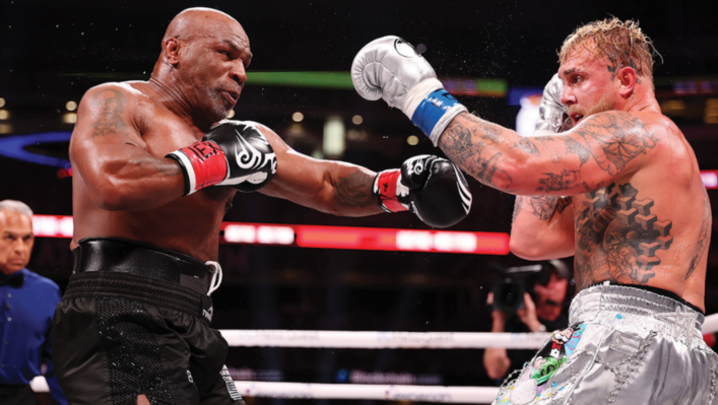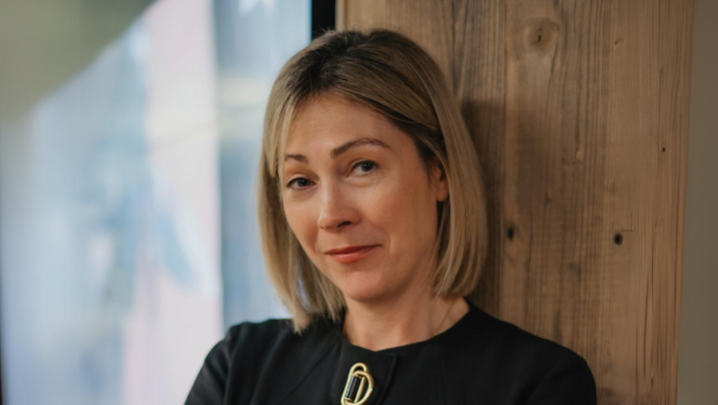Pippa Considine previews the new broadband service from the creators of Freeview and Freesat
Two decades on from the launch of its big brother Freeview, can Freely enjoy the same success in a different TV landscape? Freely is a new service from the UK PSBs, due to launch in the second quarter of 2024. It will deliver free live and on-demand TV to the growing number of homes that receive their content via the internet to a smart TV.
Freely has already revealed its arc-and-two-dots brand identity, dubbed Freemoji, together with its electronic programme guide interface and information on how channels will be organised.
The service has been developed by Everyone TV, which is owned by the BBC, ITV, Channel 4 and Channel 5. Its CEO, Jonathan Thompson, says it exists “to support the health of free TV for everyone in the UK”. In 2002, it launched Freeview, now used by more than 17 million viewers to access free-to-air channels from one portal on their TV screen, using an aerial receiver.
Its sister service, Freesat, connects via a satellite dish and is used by 2 million people. Together, that is about two-thirds of all UK households. Freeview Play, a hybrid service that allows those with a smart TV and a satellite or aerial receiver to get live and on-demand shows, was introduced in 2021.
“As we go into the streaming age, a growing number of homes are buying a smart TV, but are no longer plugging it into an aerial or a satellite feed,” says Thompson. “Freely is a service that offers an aggregated, browsable, familiar, live experience, very much like Freeview has offered historically.”
By 2030, more than half of UK TV homes will be internet protocol (IP) only, with no traditional over-the-air transmission, according to projections based on research by market analysts 3 Reasons. The company predicts that, by 2028, more than 35% of UK viewing will be exclusively via IP, with an additional 55% taking place in hybrid homes that have access to IP.
Everyone TV has been through significant changes in the past few years. It merged with Freesat in 2021 and, a year ago, rebranded from Digital UK to Everyone TV, with the highly experienced Erik Huggers, who had worked at Microsoft, Endemol and the BBC, replacing Caroline Thomson as Chair.
“Those changes led us to think more broadly about the future and how we evolve in the streaming TV age,” says Thompson. He describes “a renewed focus from the public service broadcasters on working together”.
In 2021, Everyone TV’s shareholders committed to spend £19m each over three years. BBC Director-General Tim Davie says: “Ensuring that the universality of public service television is sustained into the future is of paramount importance to the UK and all its public service broadcasters.” Davie wants to make sure that “no one is left behind”.
Alex Mahon, CEO at Channel 4, adds: “It has never been more important for trusted PSB content to be readily available to everyone, for free.”
Freeview and Freesat will continue. Initially, Freely will be available only when viewers buy a new smart TV, with the service pre-installed. About 6 million sets are sold in the UK each year. Manufacturers will need to agree to build Freely into new models, as they have done with Freeview. “Our ambition would be for Freely to become a standard that all TV manufacturers adopt,” says Thompson.
The first manufacturer to sign up has been China’s Hisense. Doing deals will not be plain sailing, however. Twenty years on from the launch of Freeview, the game has changed: a new TV screen now represents dynamic, valuable real estate. “Samsung or LG used to sell the TV and then that was it. Ten years later, someone bought another telly,” says Gill Hind, director of TV at Enders Analysis. “Now, they’ve all got skin in the game.” The manufacturers have their own channels, they charge for TV services to appear on the home screen when it’s first turned on and trade in advertising.
They will be weighing pros and cons. There are more voices clamouring for a top spot, but no money will be handed over by Everyone TV – even so, the manufacturers would benefit from any advertising of Freely and, more to the point, people shopping for a new TV may demand the new service.
Others won’t watch on a TV set at all. As Mahon points out: “Streaming TV is increasingly the new normal for audiences, particularly young viewers.” Younger audiences are likely to be watching on a device other than a TV.
There will be a Freely set-top box later on, but it is unclear when, and it is even less clear how soon there might be an app. Zuzana Henkova, senior analyst at data and analytics firm Ampere, reflects that an app is vital for an all-inclusive vision: “In terms of tablets, laptops, phones, it should be very easy to download and for people to access and it should be heavily marketed.”
Hind suggests that Freely might divert a younger audience to the PSBs. “Younger people might carry on watching something from one of the other broadcasters, but delivered in a different way.” With the rise of social media and an ever-growing mountain of content, the single portal of free content might help to inspire a younger generation.
The rollout of Freely is consistent with the intent of the Media Bill, currently in draft form, which is aiming to support PSBs’ efforts to reach as many people as possible. Mahon explains the logic: “When the Media Bill’s prominence provisions become law, the technology to make Britain’s favourite TV shows easy to find will already be in place.”
Freely’s launch also chimes with a flat SVoD market in the UK. “There’s a cost-of-living crisis and people are turning more to services that are free or cheaper,” says Henkova, who points to the increasing take-up of ad-supported streaming television offerings, such as those from Disney+ and Netflix.
Advance details of Everyone TV’s EPG show that it is loosely based on Freeview, but there is the capacity for many more channels: the first 700 will be organised by genre, starting with entertainment. There will also be news, children’s, music, shopping, faith and international, adult and radio sections. There is no sport or films.
The top five channels are BBC One, BBC Two, ITV1, Channel 4 and Channel 5. Local and regional TV channels also have priority. Beyond this, and after consulting stakeholders on a so-called “logical channel numbering” policy, Everyone TV has worked out its own popularitybased system.
Other content partners are believed to be coming on board; Freeview channels currently include offerings from Discovery, Sky, UKTV, CBS and Legend. The channel capacity also gives shareholders a chance to launch additional IP-only channels. However, Thompson makes it clear that the big Fast (free, ad-supported TV) channel platforms, including Paramount’s Pluto, are not part of Freely’s plans, saying simply: “We’re keen to coexist alongside them.”
Thompson flags Freely features that will connect the live experience with the on-demand experience, using an on-screen mini guide. “You could be watching a drama on ITV, you might be halfway through it, and you’ll be able to just quickly go back to restart, as a simple, navigational experience. Or you might stumble upon the second episode of a drama from ITV and want to watch the first episode. You can just simply click on the mini guide, and it will show all the episodes of the drama that are available.”
Thompson adds that Freely’s roadmap for further development includes personalisation: “Because we control the underlying software, we can evolve it over time.”







